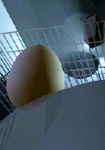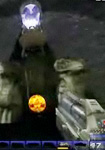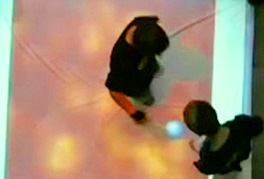"The Art Institute of Pittsburgh - Online Division" Overall it is a good job, with fine people, and great flexibility. Also I can not only finish my doctoral project (the Magic Classroom), but to use it to teach my online courses.
The courses I teach are generally 5.5 weeks in length and related to Game Design and 3D modeling. A short list includes: Game Design, Interface Design, Game Interface Design, Low Poly Modeling, 3D Camera and Lighting, Game Audio. The school however offers a vast array of majors and I often teach a new class every 5.5 weeks. I don't mind the diversity as teaching non-game courses like Illustration, Advertising, and Web Design brings back memories of my early productaion art and freelance days.
Typically
I have 1 week to grasp the course objectives and assignment methodology, view the assignment texts/materials then update/fix/personalize those texts/materials, and get up to speed on the subject and/or technology. It is hard sometimes, but my experience as a multimedia production artist (GRA Interactive) honed my ability to make sense of huge educational projects, and spot issues that need attention, has kept me out of trouble.
Descriptions and Eaxmples from past courses:.
The major project is a low poly 3DS Max character, textured, rigged and animated.
.
- Student Video File (01)
- Student Video File (02)

"3D Camera and Lighting" A really fun class to teach. On the technical side, understanding attenuation and the use of lights other than the Omni are the major goals. In application, Three Point Lighting gets extended into the virtual through the concept of Key, Fill, and Backlighting. The idea of Key lighting ties their application to narrative and mood. Expressing abstract moods, like anger or loneliness is the goal of several assignments.
The major project is a scene that relies heavily on lighting and camera angles to tell the story
.
- Student Video File (01)
- Student Video File (02)

Beyond Audacity, I cover Foleying, online resources, and general production issues.
The major project is to create new audio for a game.
.
- Student Video File

"Other Courses" I've taught a lot - more information is available on request
